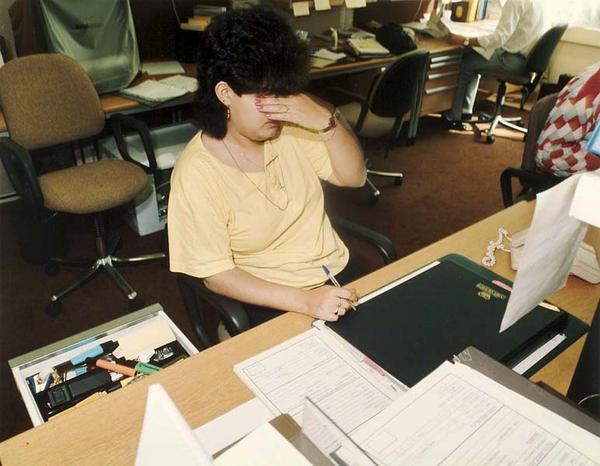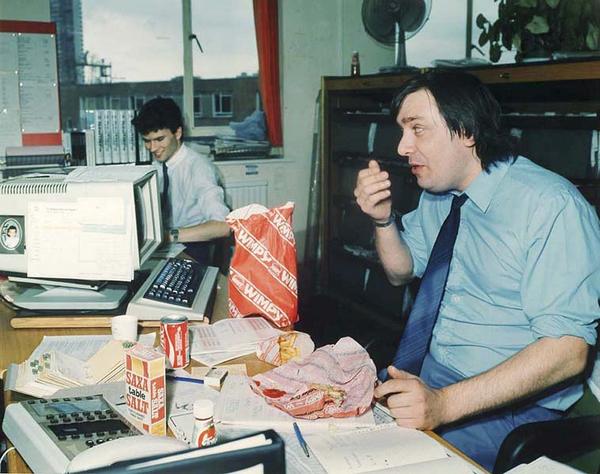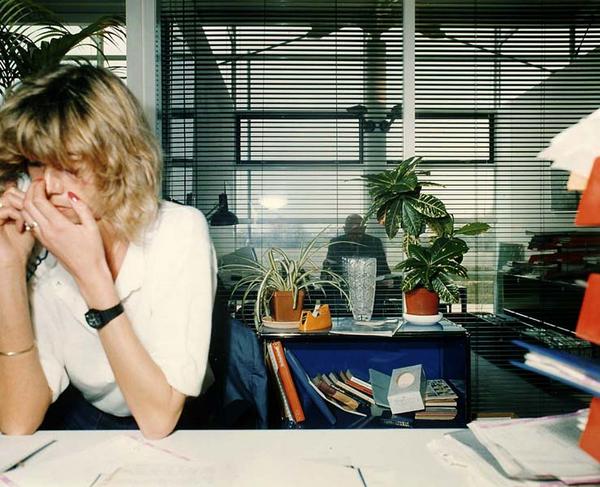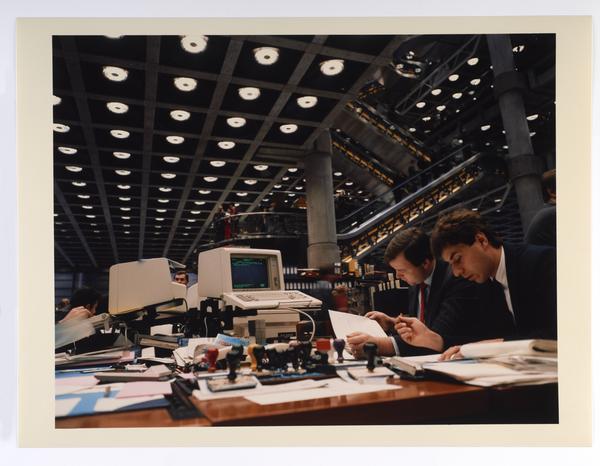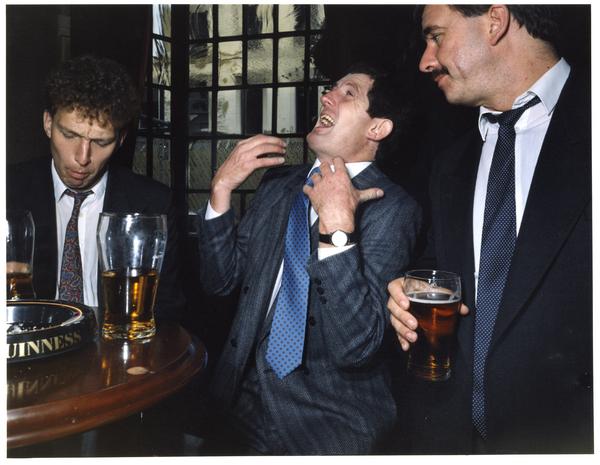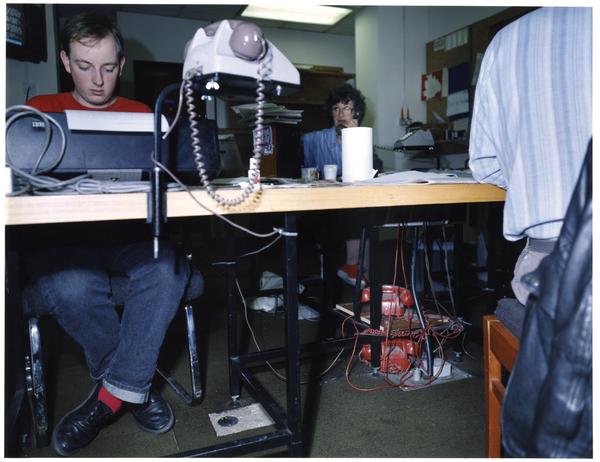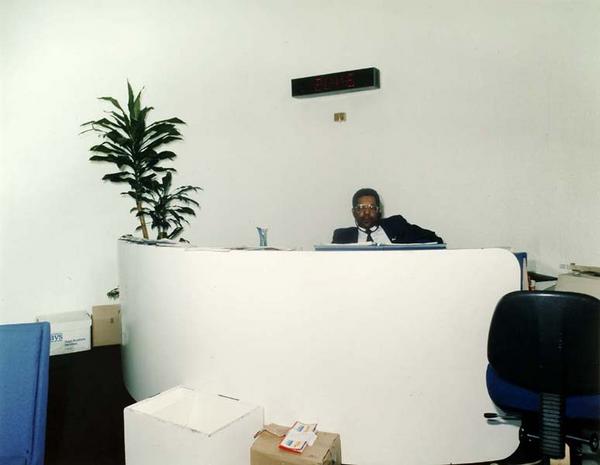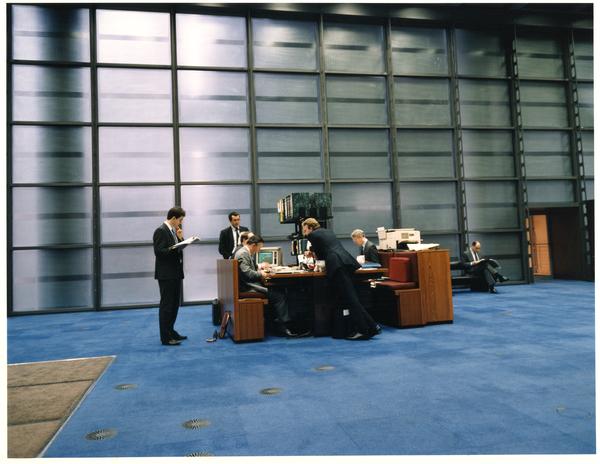Office life in the 1980s
Anna Fox’s photography series Work Stations took a critical view of office life in the 1980s – a decade of competition, ambition, technological evolution and loud displays of wealth.
1987
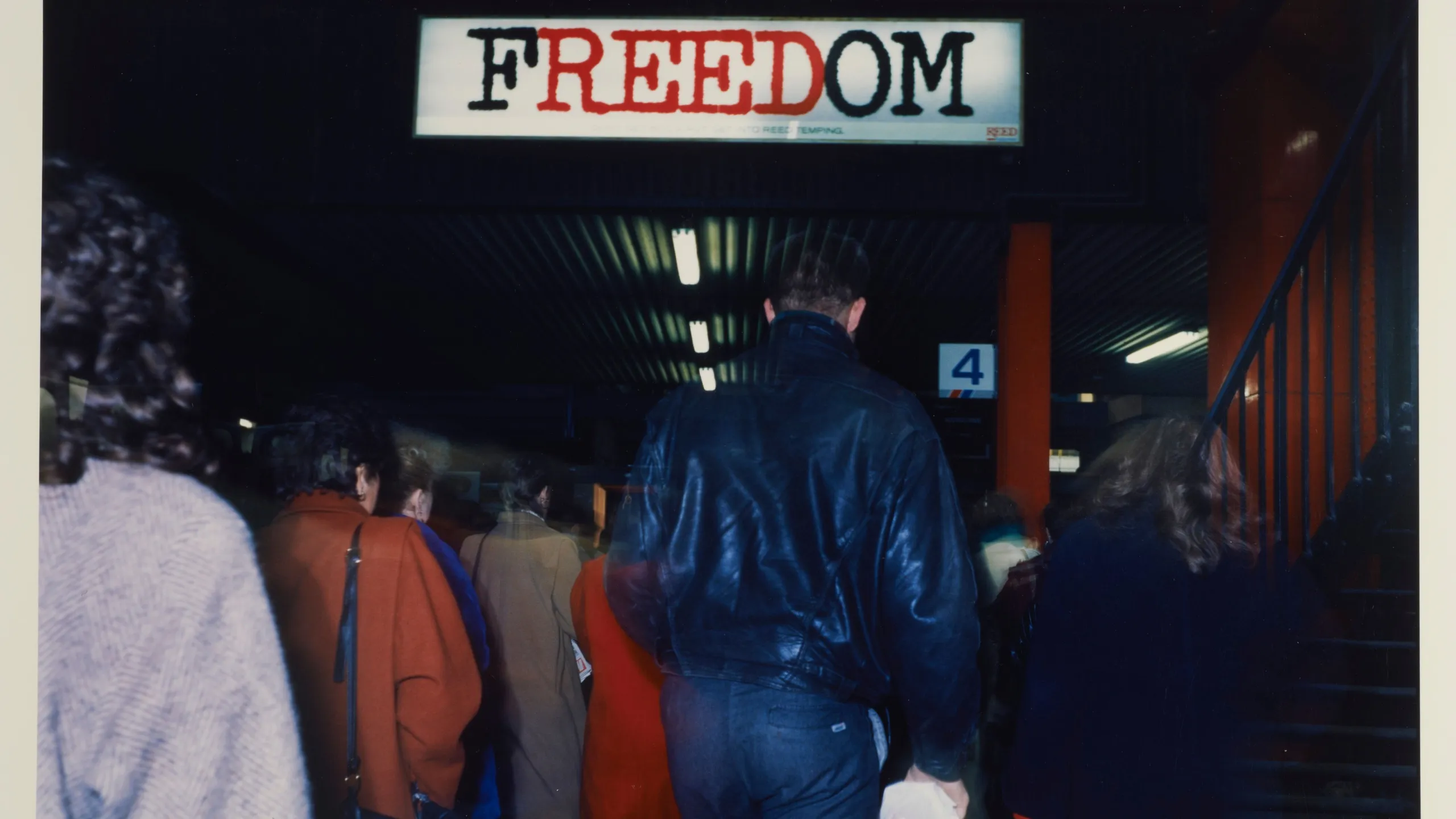
Working life
Fox’s series was commissioned by our museum and Camerawork magazine in 1987. Documentary photographers had captured working people since the 1800s, but it was rare to focus on office life. Although Fox’s subject is familiar to many of us, the images she produced feel unusual, unnerving and sometimes grotesque. It adds up to a satirical critique of this new version of office life – an environment she saw as dehumanising.
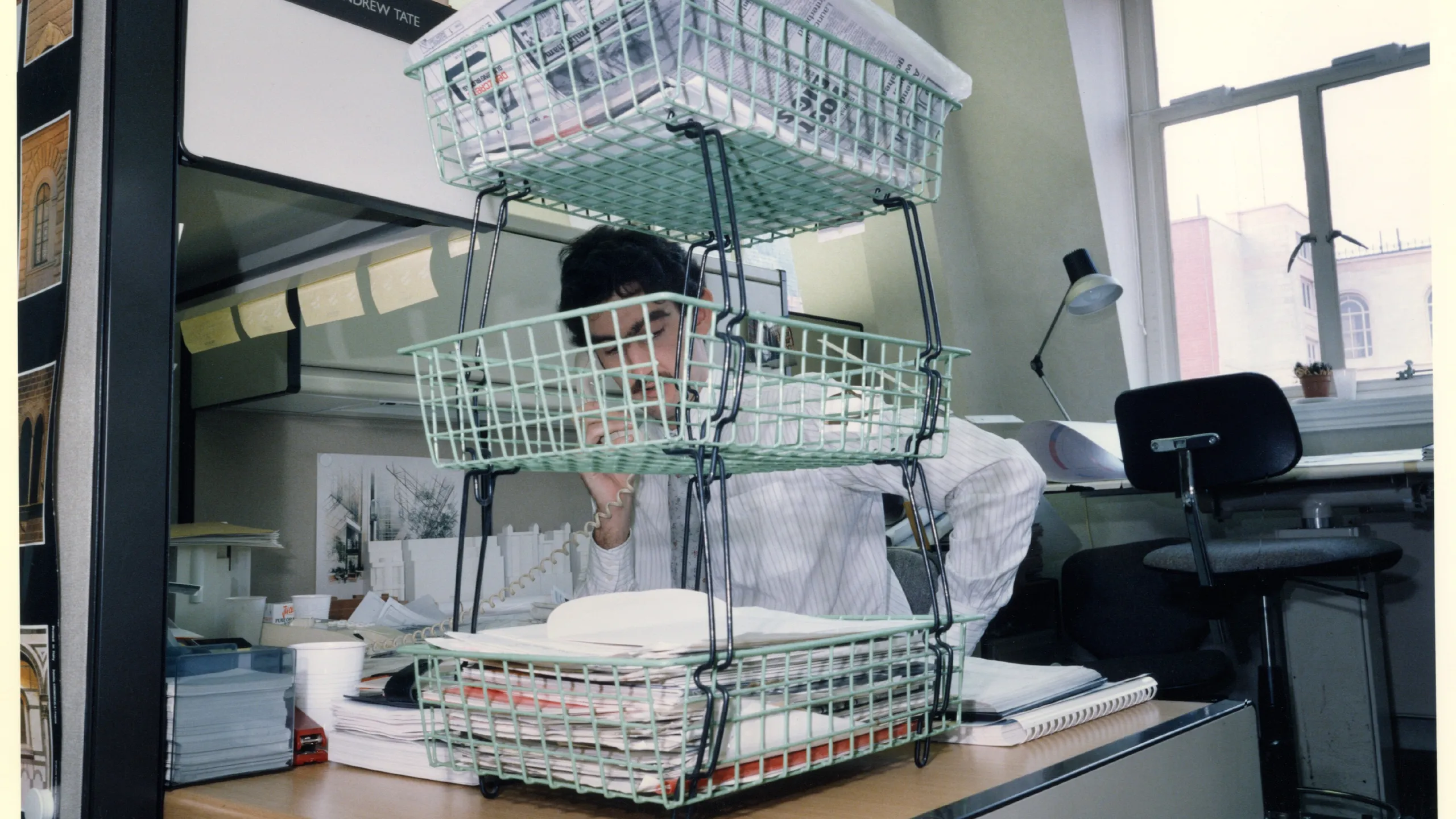
Trapped
As well as presenting people riding high in the 1980s, Fox selected moments that appear to show people exhausted, worn down or degraded by their jobs. The new management culture of the 1980s, where performance was monitored and improvement expected, was firmly within Fox’s sights.
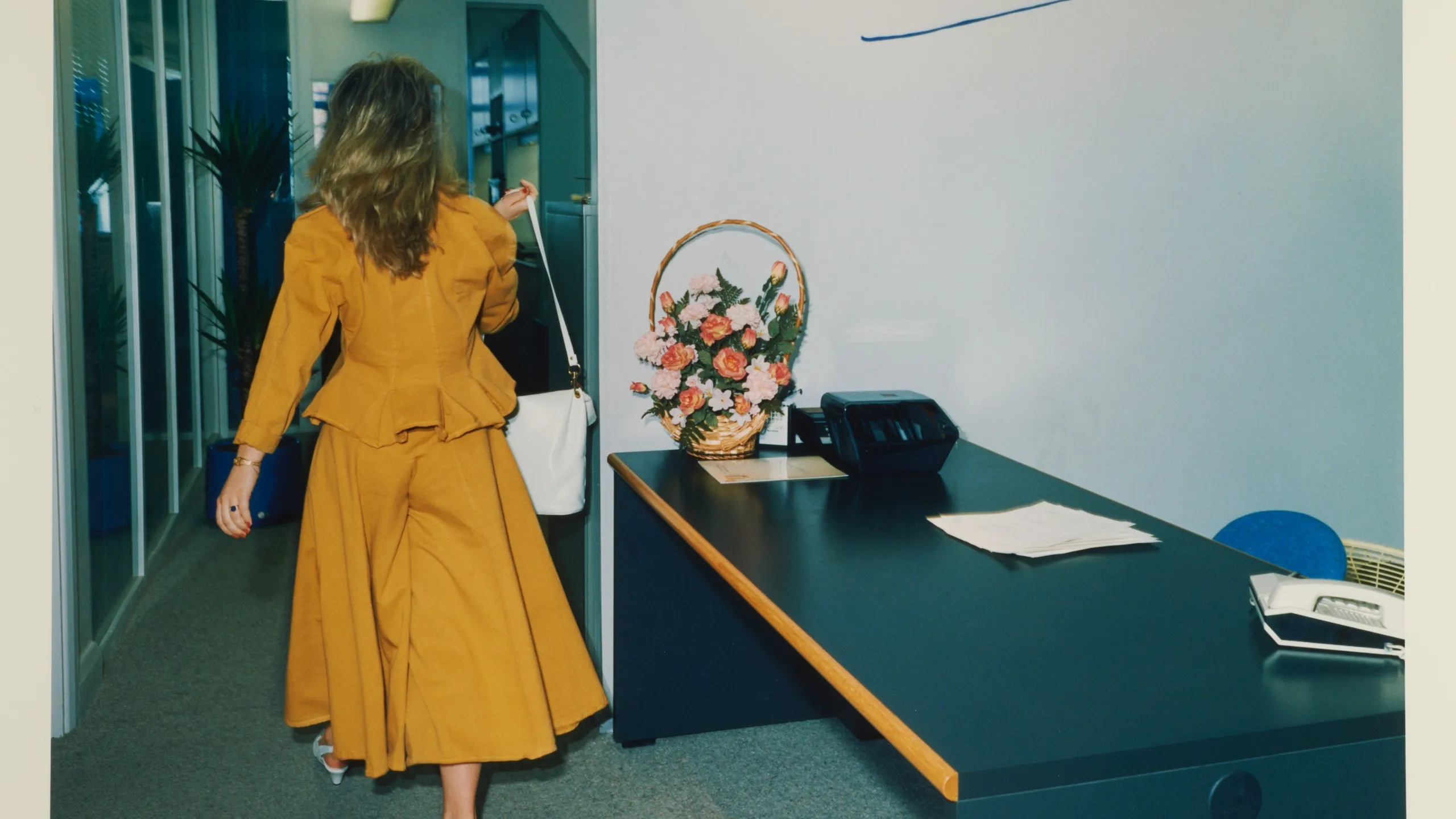
Power dressing
In the 1980s, more women were in work than ever before, and many felt empowered in their jobs. Fox’s photos give us a taste of women’s workplace style then – shoulder pads, trouser suits and big hair. But gaps in pay and opportunities remained, as did openly sexist attitudes.
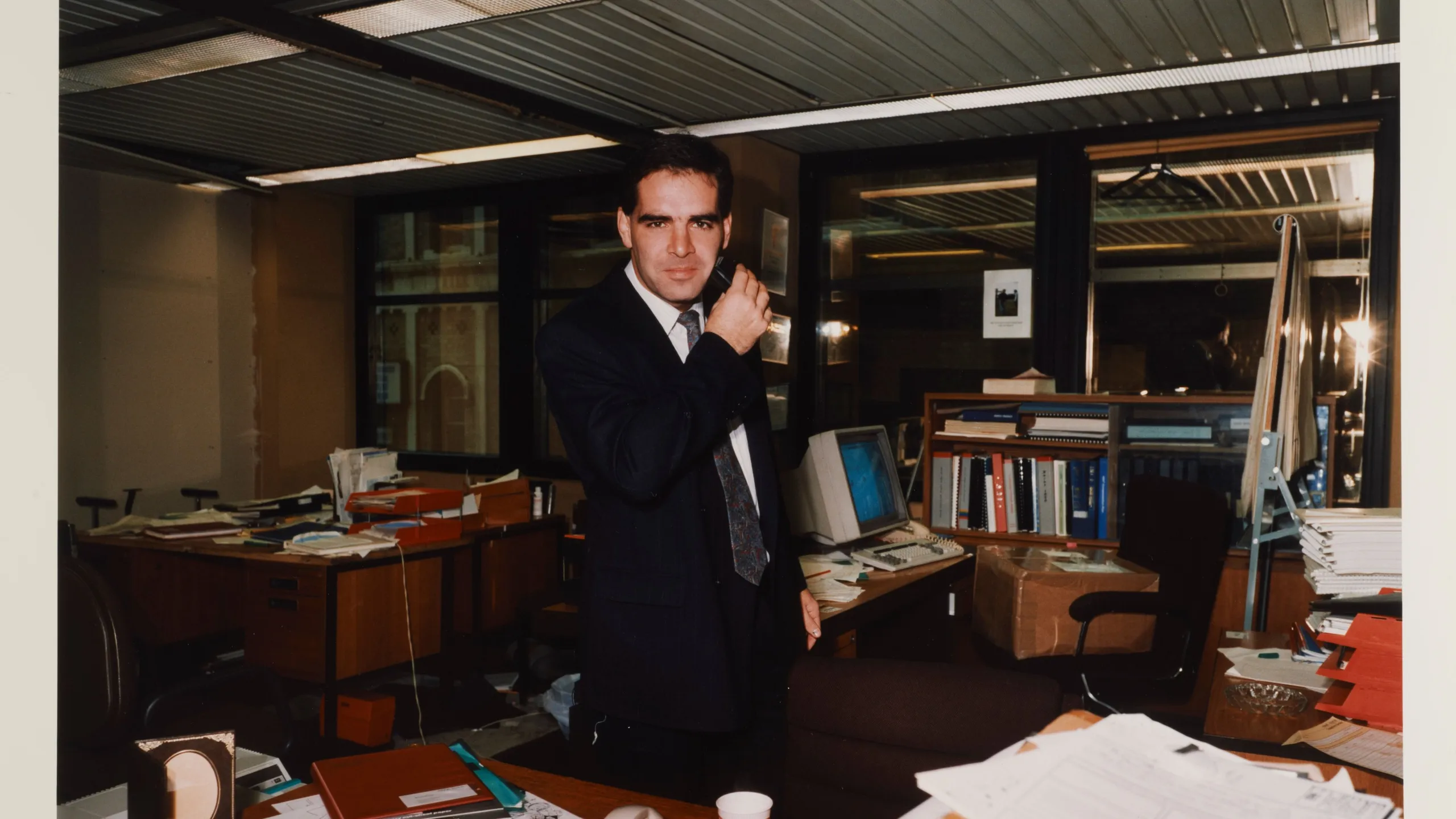
Thatcherism
The 1980s were defined by Prime Minister Margaret Thatcher, who led the country for the entire decade. Thatcher championed individualism and promised that hard work would reward you, no matter your background. In her economy, many won and many lost. Heavy industries shrank, but services grew. Property ownership rose, but unemployment was high.
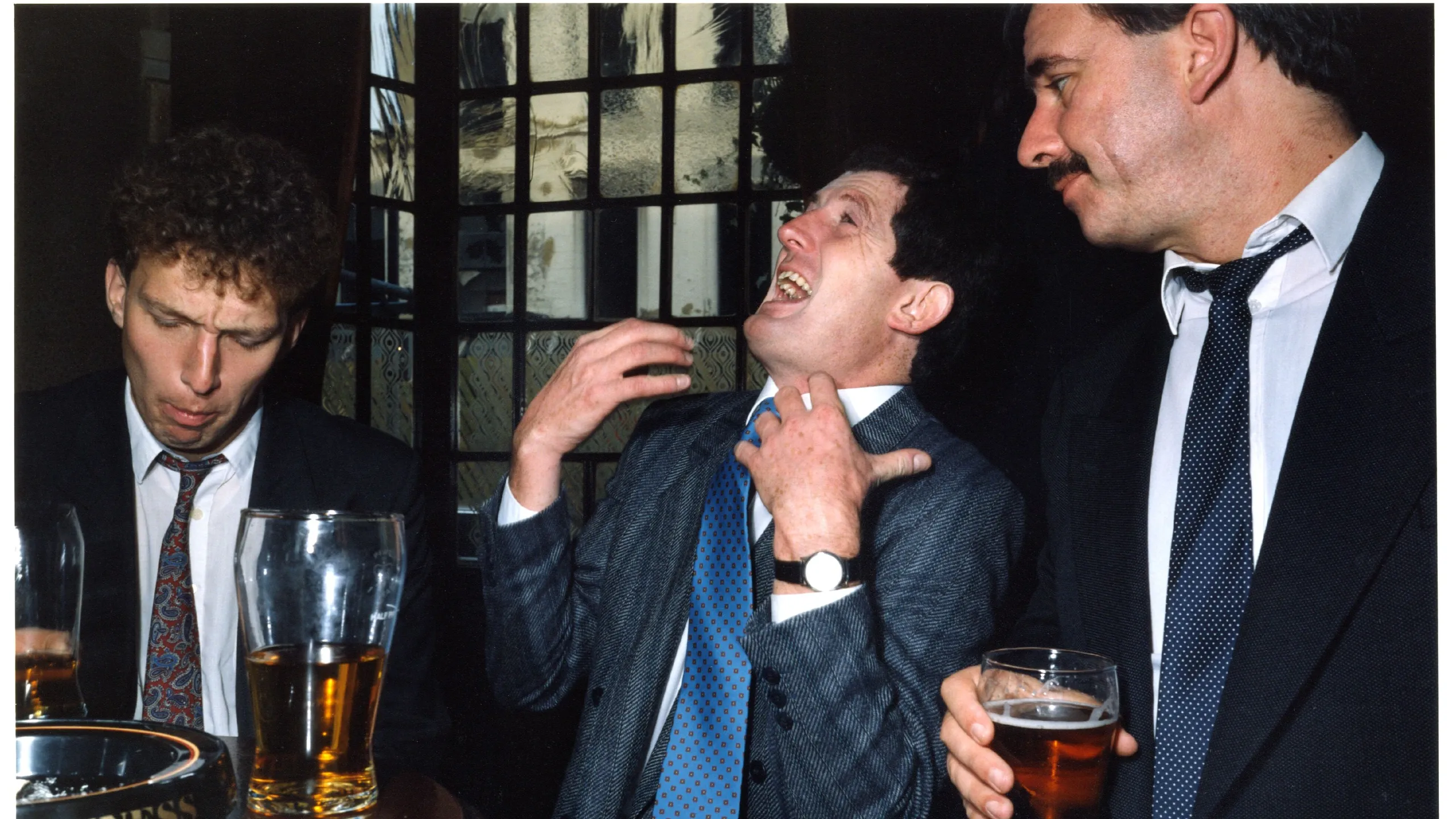
Yuppies
Short for ‘young urban professional’, ‘yuppie’ was the label used in the 1980s for London’s well-paid workers who thrived in the decade’s culture of aspiration. They soon became associated with flashy displays of wealth and the gentrification of certain areas of London.
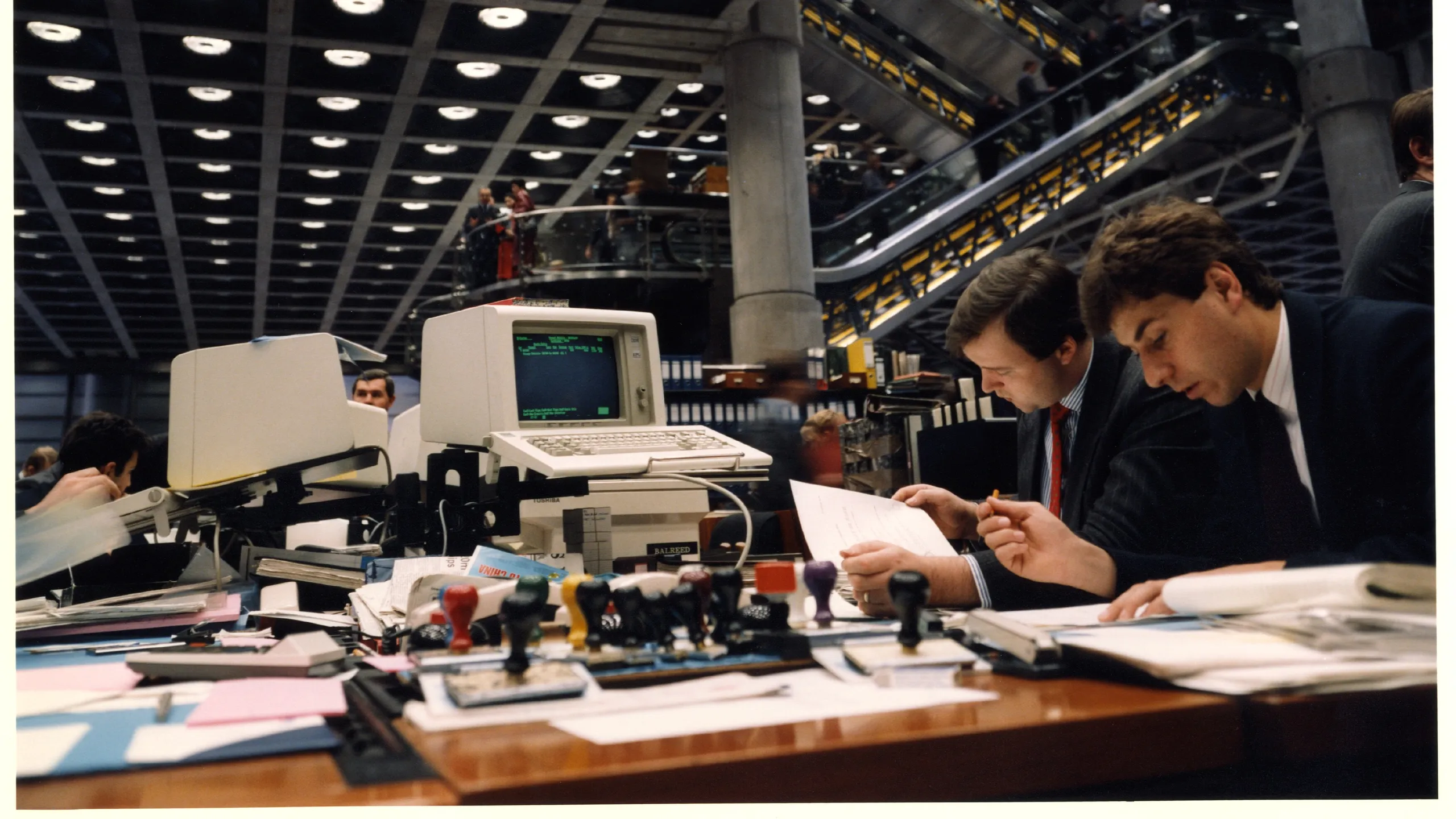
Finance fortunes
Thatcher’s free market deregulation and the introduction of electronic trading sparked a boom for London’s financial industry, often symbolised by the new towers of Canary Wharf.
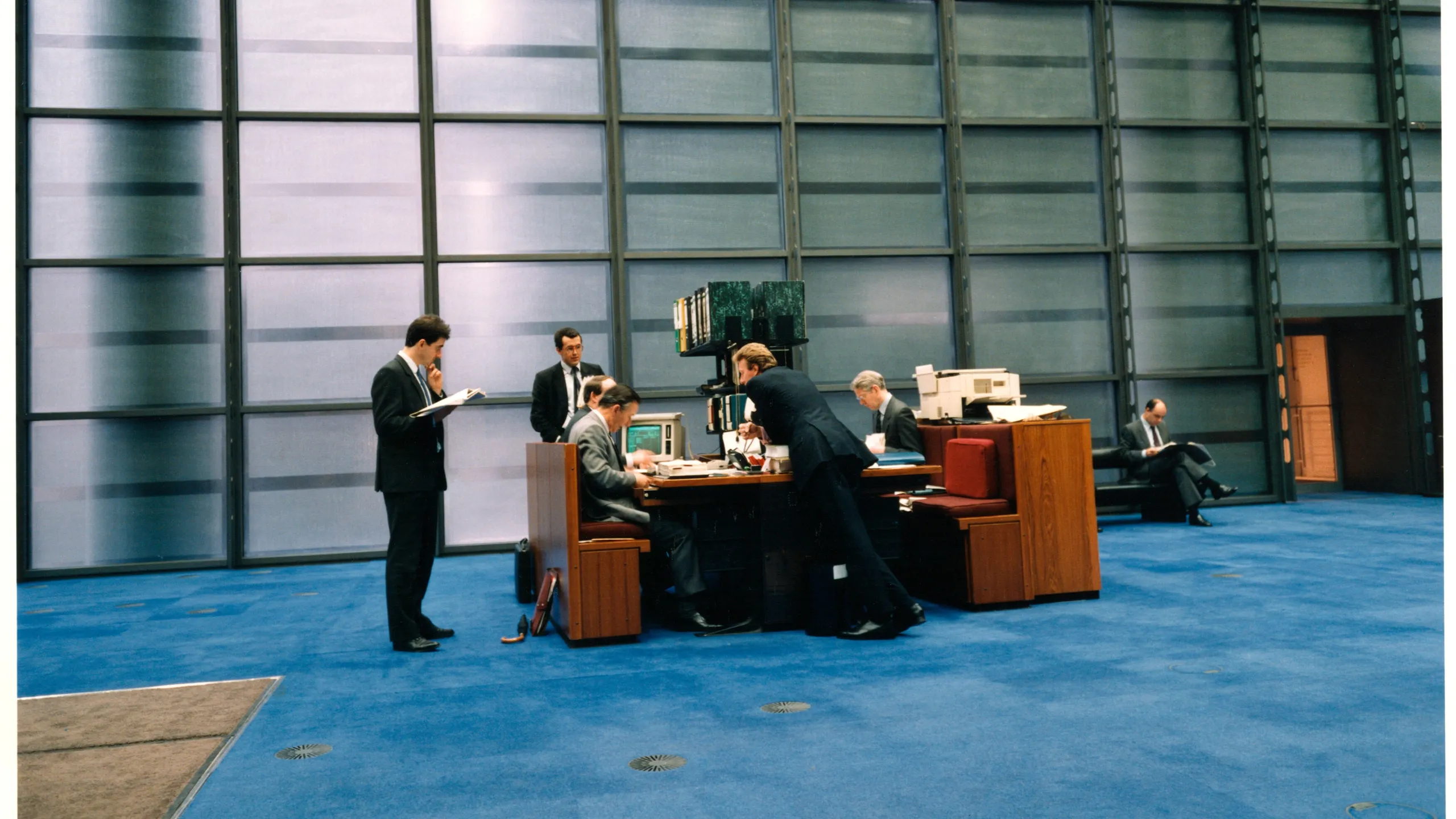
Office space
An introductory essay in the book for Work Stations suggests that “if people start working from home, as is technically feasible, economically worth thinking about… and socially anti-social – the face of the office may change all over again.”
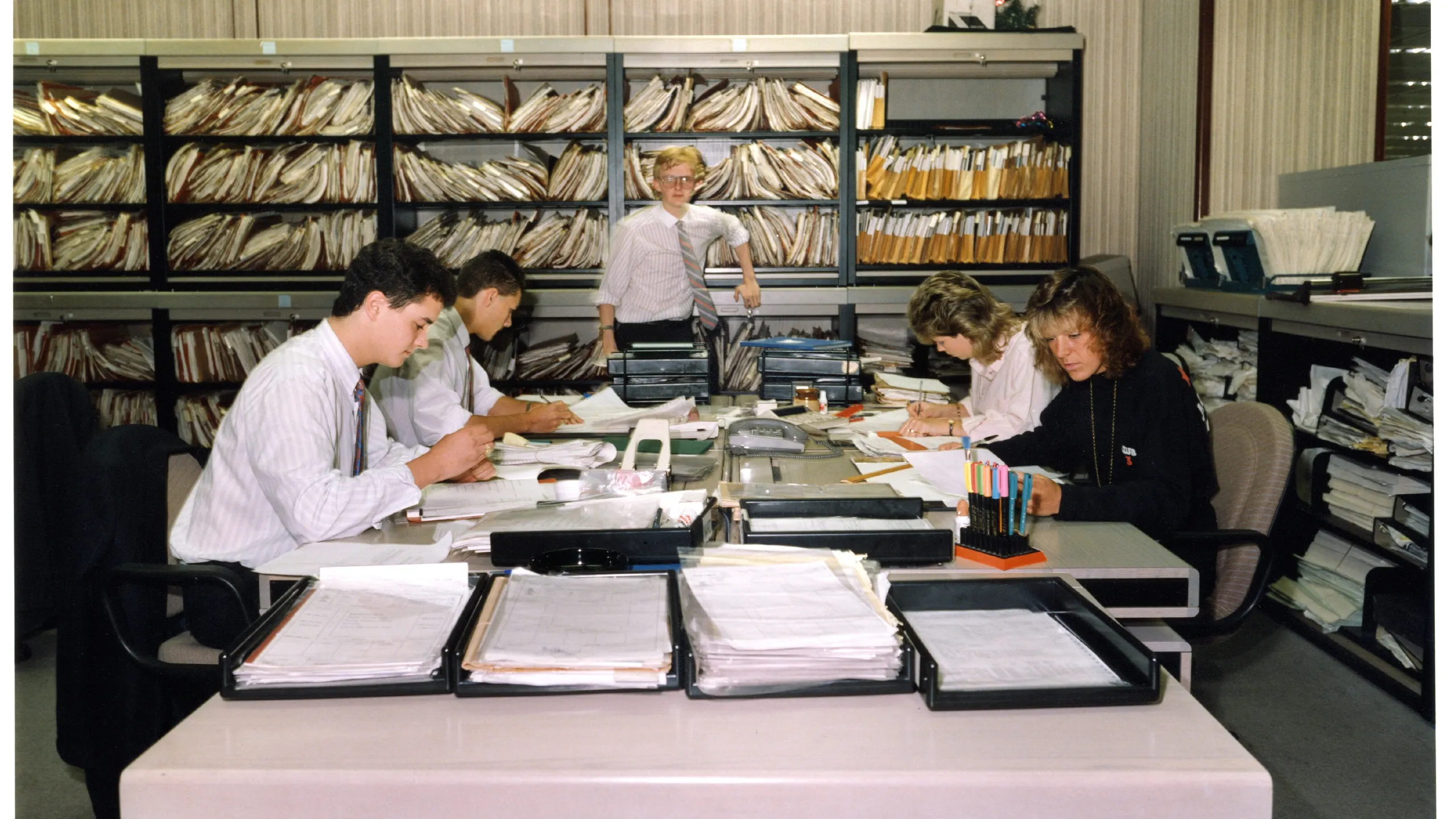
The computer age
Paper records were still vital. But the emergence of new technology was changing things. Desktop computers and fax machines became widespread, requiring employees to get to grips with a new way of working.

